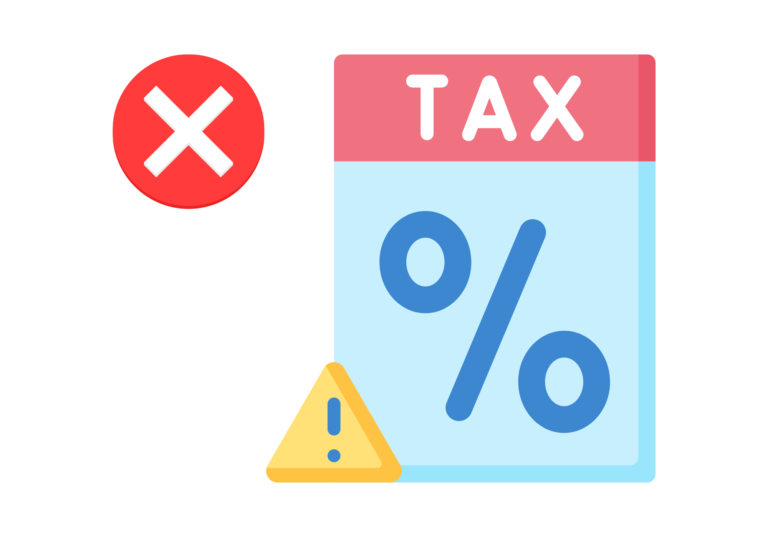You must file self-assessment tax returns if you work for yourself or have other unreported income, such as renting out real estate. Since errors can result in significant fines and penalties, even if they were completely innocent, this can be unsafe, mainly if you have never done one before.
This book covers some of the most frequent mistakes on tax returns, which are regrettably all too easy to make (and how to avoid them or put things right).
Missing Taxation Deadlines?
You should be aware of specific deadlines throughout the year here. Although most people file their tax returns online, some still do so on paper.
- Paper returns must be submitted by October 31, the day after the end of the relevant tax year.
- January 31, after the end of the tax year, is the deadline for online filing.
For the 2023–2024 tax year, a paper return must be filed by October 31, 2024, but an online return must be filed by January 31, 2025.
HMRC will consider your tax return a late submission and impose fines if you fail to file it by the deadline.
Not remembering to make account payments.
You will have to pay in advance for the following year’s taxes if your bill exceeds £1,000. Advance payment, calculated by halving this year’s amount and called making Payments on Account, can be a somewhat unpleasant surprise if you aren’t prepared for it.
Your Unique Taxpayer Reference (UTR) number is missing
When registering for Self Assessment, HMRC will provide you with a Unique Taxpayer Reference (UTR) number. For HMRC to accurately identify your tax data, you must complete your tax return.
Keep your UTR secure, but don’t worry if you misplace it! It typically appears on prior tax returns, or you can access your Personal Tax Account. If you’re still having trouble, contact HMRC for a reminder or a replacement using their general inquiries page.
Not claiming costs that are permitted.
Your tax payment will eventually be lower if you deduct permitted company expenses because businesses pay taxes on their earnings rather than their overall revenue.
Some individuals are anxious about claiming tax deductions for their expenses or unsure of what they may and cannot include. Don’t miss the opportunity to study or speak with a trustworthy counselor or accountant!
Information that is lacking or incomplete
Accurately completing your tax return requires good record-keeping, but as we all know, life happens, and things can get forgotten.
The best action is to prevent this with strong bookkeeping procedures (or a time machine to nip back before that receipt goes into the washing machine). If that doesn’t happen, keep trying.
You can use tentative statistics on your tax return.
If your documentation is discovered later, you can adjust your tax return for up to a year after the submission deadline. However, remember that this is unquestionably a last resort.
Your paper tax return was not signed and dated.
The quickest, simplest, and safest method for filing taxes is online. If you choose to file your tax return on paper, remember to sign and date it.
Although it may seem apparent, many people make the simple error of forgetting to do this each year. A photocopy won’t work, either; the original is required.
Inputting incorrect numbers
It’s easy to make a mistake or even type a typo, so be cautious when accurately inputting your figures. It isn’t worth the risk, even if HMRC typically won’t charge you if you completed your return with “reasonable care.” Typographical errors can be costly!
When you file your taxes online, many calculations will be completed, but you must double-check everything. You are ultimately responsible for your taxes even if you hire an accountant.
Not reporting pension contributions.
You must also declare any private pension contributions you made during the tax year. This information is crucial for your tax return, and any contributions you make will also result in tax relief.
I neglected to add supplemental pages.
Supplementary pages must contain any untaxed income not reported on your primary tax return. This would encompass items such as:
- Income from real estate or share plans
- A payout from life insurance
- Foreign earnings that are not taxable in the UK or on which you have already paid taxes
- Receptions after stopping
- Claims for loss relief
- Some deductions for employment
- Compensation payments, non-qualifying distributions, closed company loans, stock dividends, or other one-time payments from your employer
- Details on any bonuses or in-kind rewards (often referred to as benefits in kind)
- Taxable lump amounts from foreign pension plans
- Age-related Claims for Married Couple’s Allowance
- Additional tax breaks not previously mentioned
This is not a comprehensive list; it is merely a selection of the most prevalent ones. Once more, these are complicated subjects for which an accountant may be beneficial.
Not maintaining accurate documentation.
Maintaining accurate and current records is crucial. It dramatically simplifies the process of accurately filing your taxes, and you can utilize this information to track your finances and make better business decisions all year.
To learn more about keeping financial records, see our accounting tutorial or our Tax Return Checklist, which covers the records you might need for self-assessment in greater depth.
Not picking up lessons for the following year.
When your tax return is finally finished, it might be tempting to relax and put it off until next year. You’ll thank yourself later, but you can still do some things to make the procedure more seamless the next time.
To begin with, think about investing in an ISA. In addition to not having to report it as UK income or pay capital gains tax the following time, this can be more tax-efficient.
Consider increasing your pension benefits as well. In addition to making things simpler financially later in life, this may assist in lowering your tax bill. However, remember that pension regulations are subject to frequent changes, depending on your situation. Generally speaking, you won’t be able to access any pension contributions until you turn 55 (57 in 2028). If you’re unsure, seeing a regulated financial counselor is worthwhile.
For the next year, think about combining your pensions, savings, and assets in one place. This will streamline the procedure by cutting down on paperwork and assisting you in locating solutions that will save you money on taxes.
Once more, it’s best to seek professional advice before making a decision, as doing so can result in you having to pay exit fees or losing certain benefits. Don’t try to handle things alone if you’re uncertain because everyone’s situation is a little different. However, preparation before your next tax return deadline could significantly impact you.
What should I do if I make a mistake on my tax return?
You have up to 12 months from the submission date to correct any errors on your tax return. This is referred to as “making an amendment.”
For instance, you have until January 31, 2025, to submit your online tax return for the 2023–2024 fiscal year. You have 12 months from when you hit submit, or January 31, 2026, to make changes.
Remember that if you make any mistakes, you may have to pay interest if your tax payment is insufficient. The best course of action is to move swiftly!
Filing tax returns isn’t the most enjoyable thing in the world, but it’s crucial to do it correctly. Therefore, even if you have filed multiple times, it makes sense to hire an experienced accountant. Accountants can uncover ways to (legally) lower your tax burden as much as possible and provide you with that extra peace of mind. Because, let’s be honest, nobody wants to pay more than necessary during these difficult financial times.




